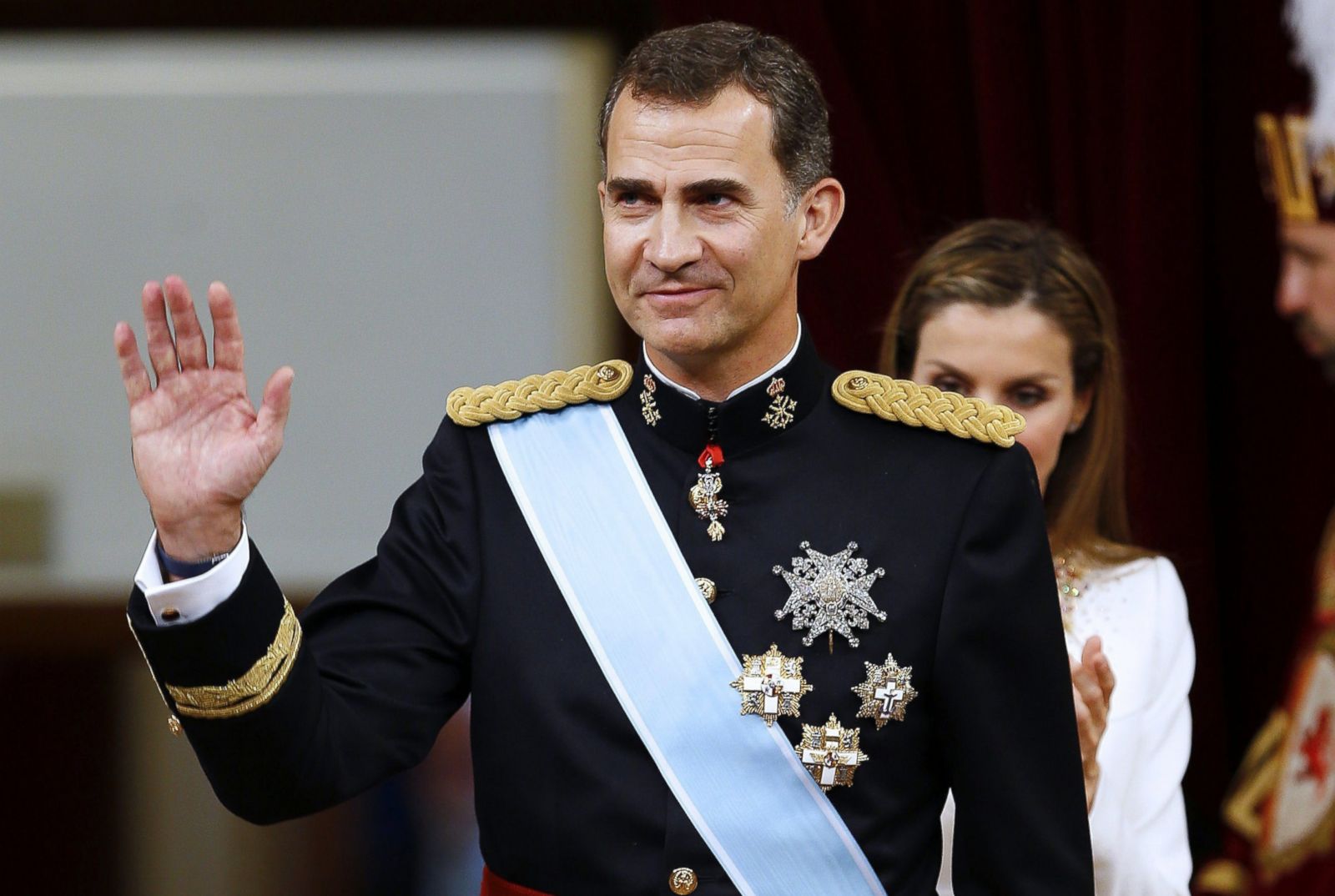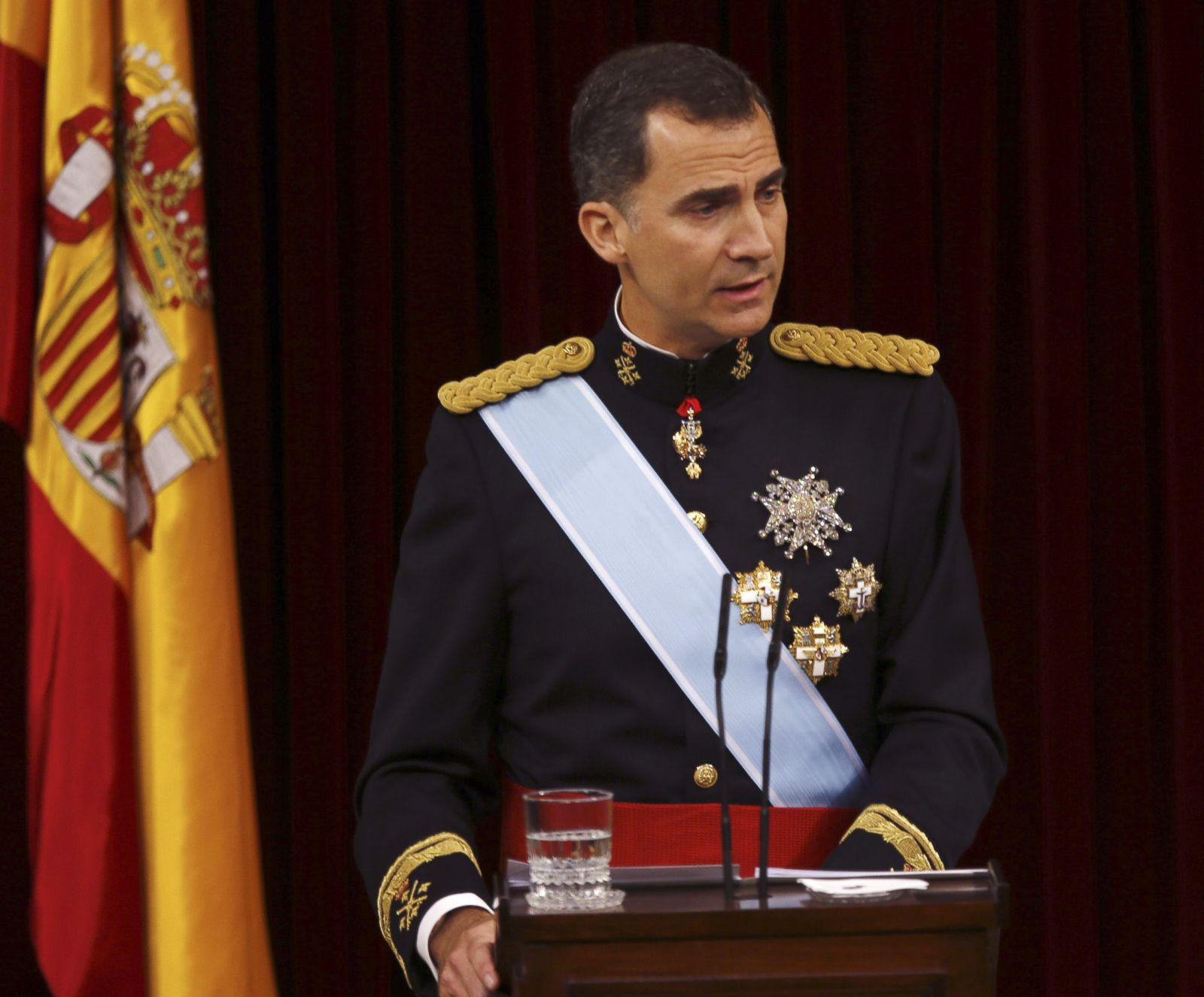Reign and Role of the King of Spain
King Felipe VI of Spain ascended to the throne in 2014 after the abdication of his father, King Juan Carlos I. As the head of state, the King of Spain serves as a symbol of the nation’s unity and a guarantor of the Constitution. The monarchy in Spain has a long and storied history, dating back to the Middle Ages. Over the centuries, the Spanish monarchy has evolved to meet the changing needs of the nation, from an absolute monarchy to a constitutional monarchy.
The current King of Spain has limited constitutional powers. He is the head of the armed forces, but he does not have the power to declare war or make peace. He also has the power to appoint the Prime Minister, but he must choose someone who has the support of the Parliament. The King’s most important role is to represent Spain at home and abroad. He travels extensively and meets with foreign leaders to promote Spanish interests.
Historical Evolution of the Spanish Monarchy, King of spain
The Spanish monarchy has its roots in the Middle Ages. The first King of Spain was Pelayo, who led the Christian reconquest of the Iberian Peninsula from the Moors in the 8th century. Over the centuries, the Spanish monarchy expanded its territories to include vast empires in the Americas and Europe. The Spanish monarchy reached its zenith in the 16th century under King Philip II, who ruled over a global empire.
The King of Spain, a keen tennis enthusiast, was unable to attend the men’s Wimbledon final this year due to prior commitments. Despite his absence, the King expressed his support for the Spanish players competing in the tournament and wished them all the best.
In the 19th century, the Spanish monarchy faced a series of challenges. The Napoleonic Wars and the Spanish-American War led to the loss of most of Spain’s overseas empire. The monarchy was also weakened by political instability and a series of revolutions. In 1931, the Second Spanish Republic was proclaimed, and the monarchy was abolished.
The monarchy was restored in 1975 after the death of General Francisco Franco. King Juan Carlos I played a key role in Spain’s transition to democracy. He is credited with helping to heal the wounds of the past and unite the country.
In the annals of royal history, the King of Spain stands as a figure of immense power and prestige. Yet, his influence extends beyond the borders of his own kingdom. Consider the recent marriage of Prince Harry to Meghan Markle, an event that captivated the world’s attention.
Prince Harry , a member of the British royal family, has forged a close bond with the King of Spain, a testament to the enduring ties between these two royal houses.
Personal Life and Family of the King

King Felipe VI of Spain was born in Madrid on January 30, 1968, to King Juan Carlos I and Queen Sofía. He is the eldest of three children and has two sisters, Infanta Elena and Infanta Cristina.
Felipe received his primary and secondary education at the Santa María de los Rosales School in Madrid. He then attended the Royal Military Academy in Zaragoza, where he graduated in 1985. Felipe also studied law at the Complutense University of Madrid and international relations at Georgetown University in Washington, D.C.
Felipe married Letizia Ortiz Rocasolano, a former journalist, on May 22, 2004. The couple has two daughters, Leonor, Princess of Asturias, and Infanta Sofía.
Felipe is a keen sportsman and enjoys sailing, skiing, and tennis. He is also a patron of several charitable organizations, including the Red Cross and the World Wildlife Fund.
The Spanish royal family plays an important role in Spanish society. They represent the country at official functions and events, and they support a wide range of charities and causes. The royal family is also a popular tourist attraction, and their public engagements are often covered by the media.
Interests and Hobbies
Felipe is a keen sportsman and enjoys sailing, skiing, and tennis. He is also a patron of several charitable organizations, including the Red Cross and the World Wildlife Fund.
Felipe is also interested in history, art, and music. He is a collector of antique maps and books, and he enjoys playing the piano and guitar.
Role of the Royal Family
The Spanish royal family plays an important role in Spanish society. They represent the country at official functions and events, and they support a wide range of charities and causes.
The royal family is also a popular tourist attraction, and their public engagements are often covered by the media.
The royal family is seen as a symbol of unity and stability in Spain. They are also a source of national pride, and they help to promote Spanish culture and traditions around the world.
Impact and Influence of the King: King Of Spain

The King of Spain wields significant influence in Spanish politics, culture, and international relations. As the head of state, he serves as a symbol of national unity and a promoter of Spanish interests abroad.
Political Influence
The King’s political influence is primarily symbolic, as he does not have direct power over the government. However, he can exert influence through his speeches, public appearances, and interactions with political leaders.
- Symbolic Head of State: The King represents the unity and continuity of the Spanish nation.
- Appoints the Prime Minister: The King formally appoints the Prime Minister, who is the head of government, after consultations with political parties.
- Presides over Government Meetings: The King presides over meetings of the Council of Ministers, where major government decisions are made.
- Signs Laws into Effect: The King signs laws passed by Parliament into effect, making them legally binding.
Cultural Influence
The King also plays a significant role in promoting Spanish culture and heritage. He supports various cultural initiatives, attends cultural events, and represents Spain at international cultural gatherings.
- Patron of the Arts: The King is the patron of the Royal Academy of Fine Arts and other cultural institutions.
- Promotes Spanish Language: The King actively supports the promotion of the Spanish language and culture worldwide.
- Preserves Historical Heritage: The King oversees the preservation and restoration of Spain’s historical monuments and cultural sites.
International Influence
The King represents Spain in international relations and promotes its interests abroad. He undertakes official visits to other countries, meets with foreign leaders, and participates in international organizations.
- Promotes Spanish Interests: The King advocates for Spain’s economic, political, and cultural interests on the global stage.
- Enhances Diplomatic Ties: The King’s visits and interactions with foreign leaders strengthen diplomatic ties and foster cooperation.
- Represents Spain in International Organizations: The King represents Spain in organizations such as the European Union and the United Nations.
Challenges and Opportunities
The Spanish monarchy faces several challenges and opportunities in the 21st century. These include adapting to changing societal norms, maintaining public support, and navigating the evolving political landscape.
- Modernizing the Monarchy: The monarchy needs to modernize its image and practices to stay relevant to the changing values and expectations of society.
- Maintaining Public Support: The monarchy relies on public support to maintain its legitimacy. Maintaining a positive image and demonstrating value to society is crucial.
- Navigating Political Changes: The monarchy must navigate the changing political landscape, including the rise of new political parties and movements.